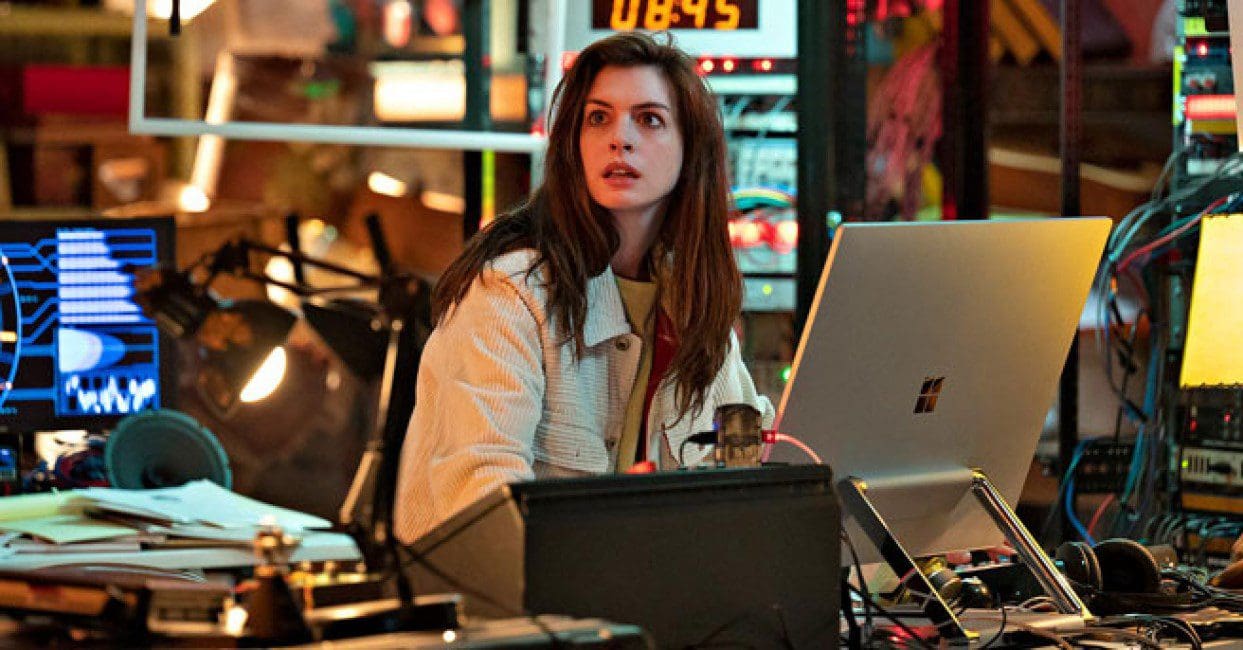
It’s a unique and challenging task to create an anthology series featuring seven episodes of character-driven stories. Confining the subject of that episode to one setting, and often giving them little to play off of other than themselves, is even more problematic. To be successful in this endeavor you must be certain that the writing is captivating and that you have the right actors to convey the wide range of emotions, both subtle nuance and big, weighted swings, required to carry that performance. While some stories told in Solos are more compelling than others, there is no questioning the aptitude of those chosen to tell them.
The Amazon Original anthology series, aptly named Solos, is showrunner David Weil’s second contribution to Prime Video after the generally well-received Hunters of last year. While credited with the majority of the writing again, he also directed three of the episodes this time, with Sam Taylor-Johnson helming a pair, and Zach Braff and Tiffany Johnson each directing one. While there may only be one setting for each episode, each one is elaborate enough to suit the story and the directors and crew know how to make the most of them. The production designer Ruth Ammon really outdid herself this time and deserves another Emmy nomination.
Solos serves as a rare chance for actors to give a performance not unlike something often reserved for long monologues on stage. It makes sense that those appearing have that background or comparable experience, and make the most of the opportunity. Each episode is named for the character whose story is being told. The episodes include Leah (Anne Hathaway, Les Misérables), Tom (Anthony Mackie, The Falcon and the Winter Soldier), Peg (Helen Mirren, The Queen), Sasha (Uzo Aduba, Orange is the New Black) with voice talents of The Boys’ Jack Quaid, Jenny (Constance Wu, Crazy Rich Asians), Nera (Nicole Beharie, Sleepy Hollow), and Stuart (Morgan Freeman, The Shawshank Redemption), with Legion’s Dan Stevens as Otto.
Born in a time when it was difficult for a large cast or crew to come together, with an episode inspired by this as well, Solos is certainly unique, while not entirely groundbreaking. An easy comparison for the series would be Black Mirror, based on its structure, loose connections tying the stories together, and overall bleak tone. In fact, Mackie and Beharie starred in an episode of Black Mirror together previously. There are some big differences between them, however. Aside from the ensemble casts, bigger set pieces, and longer run times, Black Mirror also focuses on the dangers of technology as it could evolve. Solos has stories that follow an evolving timeline, so you get the payoff of references to technology that you saw previously, but ultimately it’s focused on human connections and a need to maintain them.
Everyone may connect with one story more than another for different reasons. For some, it might not get better than Leah, where Hathaway is desperately trying to figure out time travel for reasons she doesn’t want to admit. The episode features some great pop culture references that’ll make you laugh, and then it has you fighting back tears just minutes later. That’s a common occurrence, and why it’s so impressive that they can do so much with such a short runtime. As the credits roll on that episode, you think it’s one of the most impressive performances you’ve ever seen on screen, and then Tom starts and Mackie is arguing with himself, and that’s incredible as well. Who’s next? Helen freaking Mirren that’s who, and she’s on a spaceship making references to the classic Sandra Bullock film Speed 2.
As tempting as it might be to binge a short series that boasts such a fantastic cast, it’s best to let each episode simmer a bit or they start to get overwhelming. It’s not that they are too complicated to follow, or even that they are too heavy, although they do get progressively more somber after Peg until the finale, odd as that may seem. It’s like sitting in a room with someone and they are telling you their most important story, pouring their heart out to you, and you are hanging on every raw word. When they finish, it seems dismissive to move on so quickly. It would be like immediately turning to someone else and asking what they have.
Outside of the connections that Freeman and Otto discuss in the final episode, Stuart, there are a lot of common themes that are easy to pick out; these include illness and disease, loss, loneliness, and, more significantly, the impact those things have on people and the choices they make. People can be selfish. They can be scared, mistrusting, and ultimately, they can make mistakes. Those things are all part of the human experience.
In terms of viewer enjoyment, Solos peaks early, with the first three episodes bringing as many smiles to your face as tears. From there, things take a turn; they remain interesting and absolutely well done, but are more one dimensional and lose some of what set them apart from that of similar series. The performances never waver, however, and everyone involved clearly gave all they had to these beautifully crafted stories.

